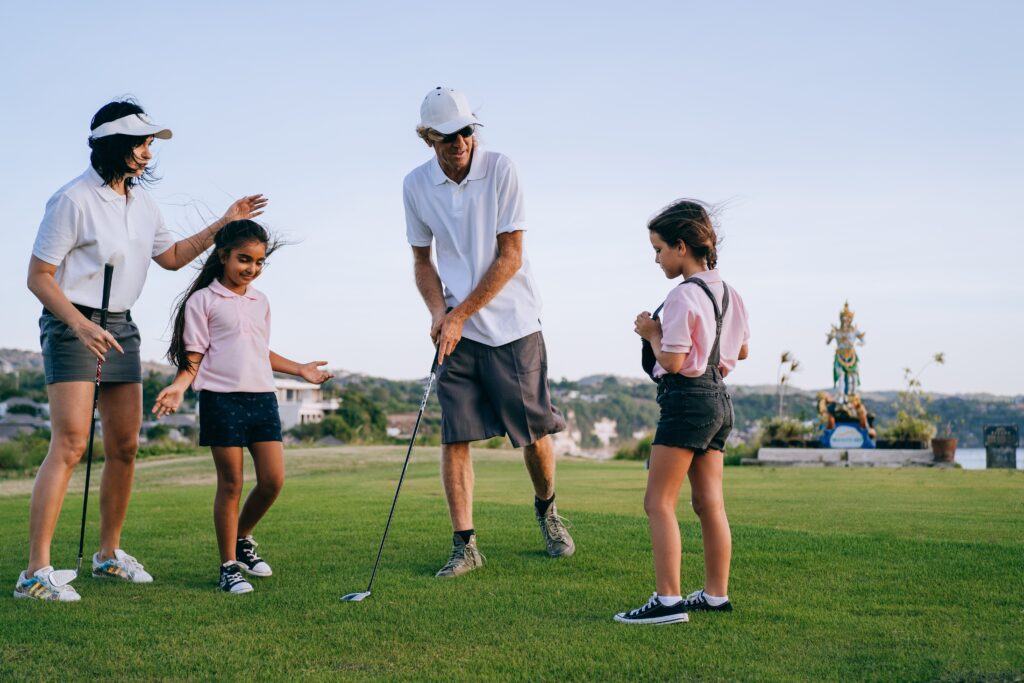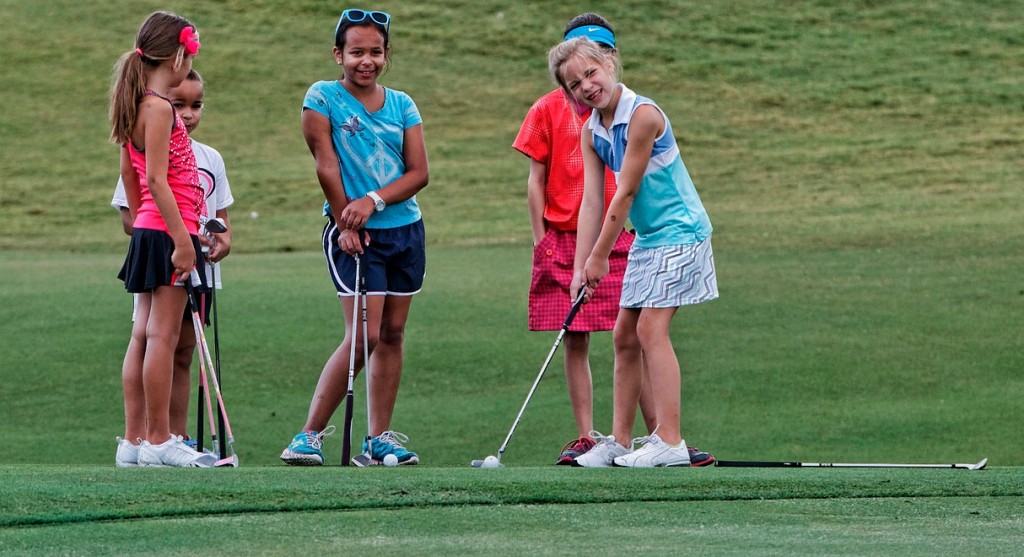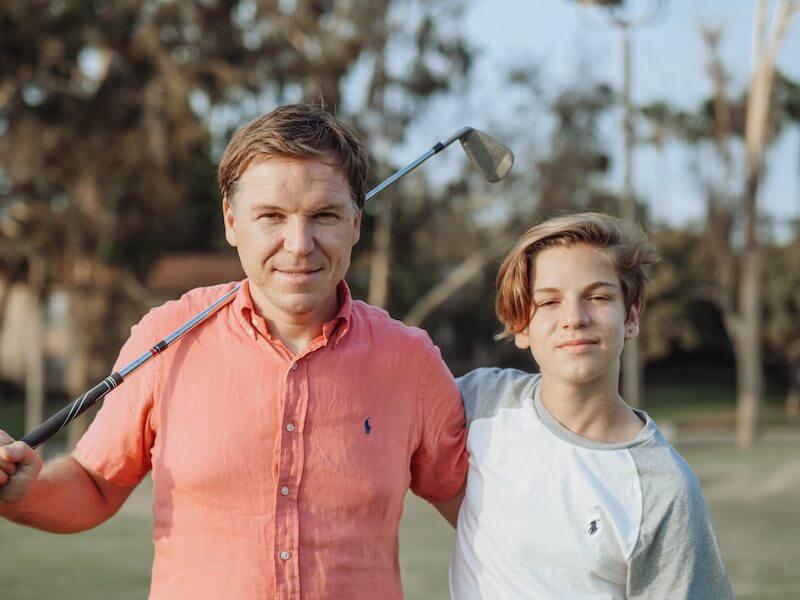Want your child to grow up with excellent problem solving and interpersonal skills? Teach your child to golf and they’ll learn more than you know!
Sport is an important part of childhood. Not only does it teach your kids great hand-eye coordination and makes a huge difference to their physical development, but the act of learning a sport can also have very positive effects on your child’s brain development.
But some sports are a little more brain-boosting than others if you want your kids to develop excellent strategic thinking skills, teach your child to golf!
Here’s why we believe golf is such a great choice of sport for toddlers, young kids, and teens.
Fosters Strategic Thinking Skills

If taught correctly, golf can be an excellent way to teach your kid problem-solving and strategic thinking skills.
Starting on the mini-golf green, your child will have to think about the best way to get the ball in the hole while skirting the numerous hazards scattered across the course!
In the beginning, it’s all fun, games, and many, many bogeys. But as your child progresses from mini-golf to the real golf course, those strategic thinking skills will be tested, especially when they start working on their driving skills.
From tee to green, golf requires strategy, even for beginners! Do you hit straight down the fairway, or go towards the right to avoid that bunker? How do you handle the wind that’s blowing across the hole?
If your child makes it past mini-golf and starts learning to play the game on the real course, their brain will constantly be challenged and they’ll be forced to come up with creative ways of getting to the hole.
Develops Patience

Most people don’t consider patience to be a brain-boosting thing, but the truth is, the more patient you are, the more you’ll end up learning and the further you’ll be able to get in life.
And there’s no better sport for helping to develop patience than golf! There’s a reason a good round of golf takes a few hours to play. You can’t rush through your shots, or you’ll never play as well as you could.
If your child is serious about learning golf, it’s a great idea to watch some of the big tournaments with them. The big players take their time, look at their shot from different angles, and finally only commit to it when they’ve made their decision and they’re ready to execute it.
Teaching your child how to play golf gives them ample opportunity to work on that patience. Maybe they need to wait for a breeze to pass before playing their shot. Maybe they need to walk a little way to the left to see how the green slopes and decide how to play it before actually committing.
Either way, whether you’re playing on the mini golf arena, the par-3 practice course, or the full course, patience is a key trait that is well learned by playing golf.
It’s Fun!

While we know that not all children will love the game, the truth is that golf is fun. Whether you’re putting balls for fun with the family on the mini-golf course or driving it down the fairway competing against friends, it’s a great way to spend a few hours.
Kids also learn best when they’re enjoying themselves! That makes the putting green, driving range, or golf course the ideal place to play and do some brain-boosting at the same time. Oh, and they’ll be outdoors, getting a good dose of vitamin D and fresh air, which is invaluable.
Conclusion
We know that not all kids are going to develop a passion for golf, even if they’re taught the sport from a young age. Some of them will abandon the sport as they grow older.
But if you teach your child to golf when they’re still developing, it goes a long way towards boosting their brainpower, instilling excellent sportsmanship, and helping them to think out of the box when it comes to problem-solving.
And of course, it’s also a great way for the whole family to bond! There are no disadvantages, so why not teach your child to golf when they’re old enough to swing a club?
About the Author Jordan Fuller is a retired golfer who shares his passion for the game by mentoring young golfers. When he’s not coaching youngsters, he’s writing for his website, Golf Influence.














